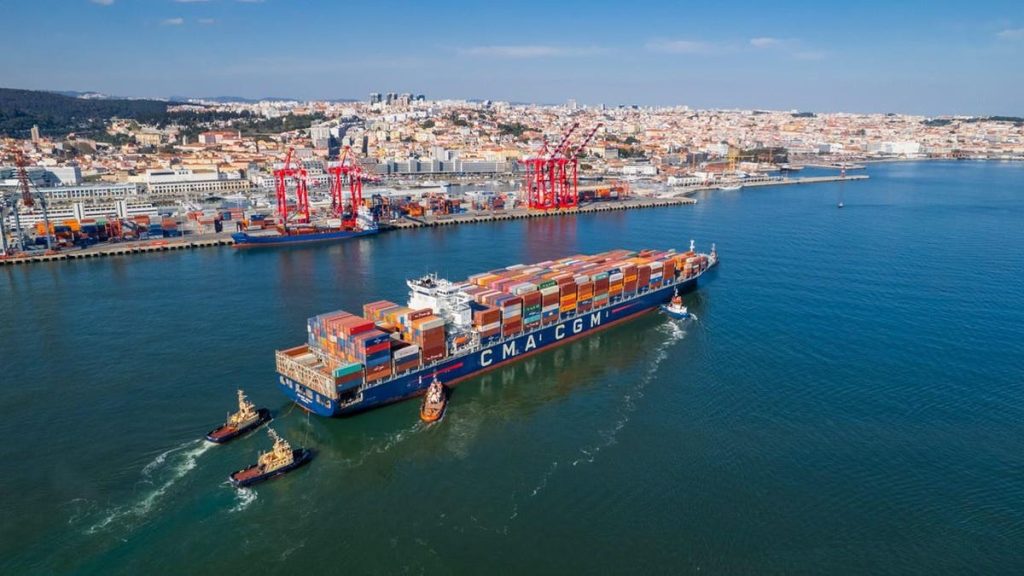Images of huge container ships gliding in and out of ports have come to symbolize the modern supply chain. Managing these ports – the gateways of international trade – is a highly complex business. The most important part of the ocean shipping industry, seaports expedite the movement of millions of goods each day. They provide facilities for docking, loading, unloading, and storing cargo, and many are undergoing a massive transformation as the industry recovers from pandemic-related disruptions.
All-inclusive logistics hubs
One company that excels at this intricate task is YILPORT Holding, which owns and operates 24 marine ports and terminals and 7 dry terminals around the globe. These terminals offer multipurpose services, supported by inland container terminals, depots, warehouses, and logistics centers.
The company was established in 1980s by Robert Yüksel Yildirim, Chairman and CEO of YILPORT Holding. Originally known as Mr. Chrome, Yildirim was the market maker of the chrome industry before becoming the Lord of the Ports. As a game-changing mechanical engineer, his vision for YILPORT Holding’s growth strategy in port operations has been followed closely by the industry.
“Our mission is to rank among the top 10 international operators by 2030 and be the game-changer in port and terminal operations. In a world where everything is so interdependent, our sector is a key player in world trade,” said Murat Akbudak, CFO for YILPORT Holding, at the recent SAP Seaports Innovation Summit held in Istanbul, Turkey. The company’s C-level team was on hand to highlight the advantages and benefits of doing business with YILPORT.
Erhan Çiloglu, CMO of YILPORT Holding, outlined the company’s one-stop shop service model. Available at all locations, it includes resources and facilities to handle container, bulk, and liquid cargo and provides damage-free stevedoring for automotive roll-on/roll-off services, logistics services such as freight forwarding, pilotage and tug services at all terminals, and much more.
“Our customers can take advantage of combined services to minimize costs and maximize the velocity of cargo flow,” said Çiloglu. “We are an end-to-end service provider, with simple supply chain solutions to facilitate operations for our customers. We are very excited about new terminal opportunities in our pipeline that will be implementing our business philosophy to streamline operations.”
High-end, integrated technologies
YILPORT is the fastest-growing international terminal operator in the world, and its equipment can handle the world’s largest container vessels. It manages 17 million TEUs (Twenty-Foot Equivalent Units or 20-foot containers) in 12 different countries. In 2022, it broke its all-time container handling record by growing 9%, a feat which is projected to be repeated this year.
Clearly, operations of this magnitude can only function smoothly with the help of technology. The company’s linear processes have been built and improved with automation, easy communication tools based on EDI to exchange documents electronically, common platforms, and Web-based solutions and systems.
“Our operations are managed centrally and embrace automation and the data-centric nature of the new industrial revolution,” said Dericioglu, Business Systems Director of YILDIRIM Group. “Industry 4.0 principles are applied to all systems, remote monitoring through IoT, and our cloud infrastructure. Our assets are already digitalized for the smart ports in the future.”
To accelerate its journey to the intelligent enterprise and streamline its order-to-cash processes, YILPORT ran a pilot project at Gemport, one of its locations in Turkey, implementing the SAP Billing and Revenue Innovation Management solution with the help of SAP Specialist partner, Acuiti Labs.
“We are using an advanced cloud-native solution developed by Acuiti that allows the end customers of SAP Billing and Revenue Innovation Management and SAP Subscription Billing to buy and self-manage their subscriptions,” he explained. “This tool has a special accelerator for port management that makes it easy to view invoices, make payments, raise disputes, and manage the subscription lifecycles, streamlining the entire process.”
Long-lasting results
The pilot implementation had three goals. The first was to automate invoice generation and empower customers through a new, self-service portal. The second was to ensure data consistency across systems for accurate invoicing, reducing disputes and revenue leakage, and the final goal was to provide a holistic 360-degree view of the customer’s financial data.
At the close of the project, YILPORT boasted a fully operational end-to-end container line of business leveraging SAP Billing and Revenue Innovation Management’s best practices and a solution scalable enough to be rolled out to other ports in the region.
Thanks to the use of innovative technology, YILPORT is well on its way to achieve its vision to become one of the top 10 global port operators by 2030. But technology is just one part of the story. The company is investing in low-carbon and energy-efficient practices to meet regulatory compliance and standards and to reduce waste in the operational environment. It is developing new business models together with customers and partners to provide an even wider range of port service offerings, and it maintains a strong focus on safety and training to reduce work-related injuries.
Last but not least, YILPORT Holding takes a holistic approach to integrate sustainability within all aspects of its business. This approach is seen as essential to developing a robust business for the people, customers, environment and communities within the operating companies.
All these actions combined are what give this company its transformative power and pioneering character.
Follow me on Twitter @magyarj
Read the full article here










